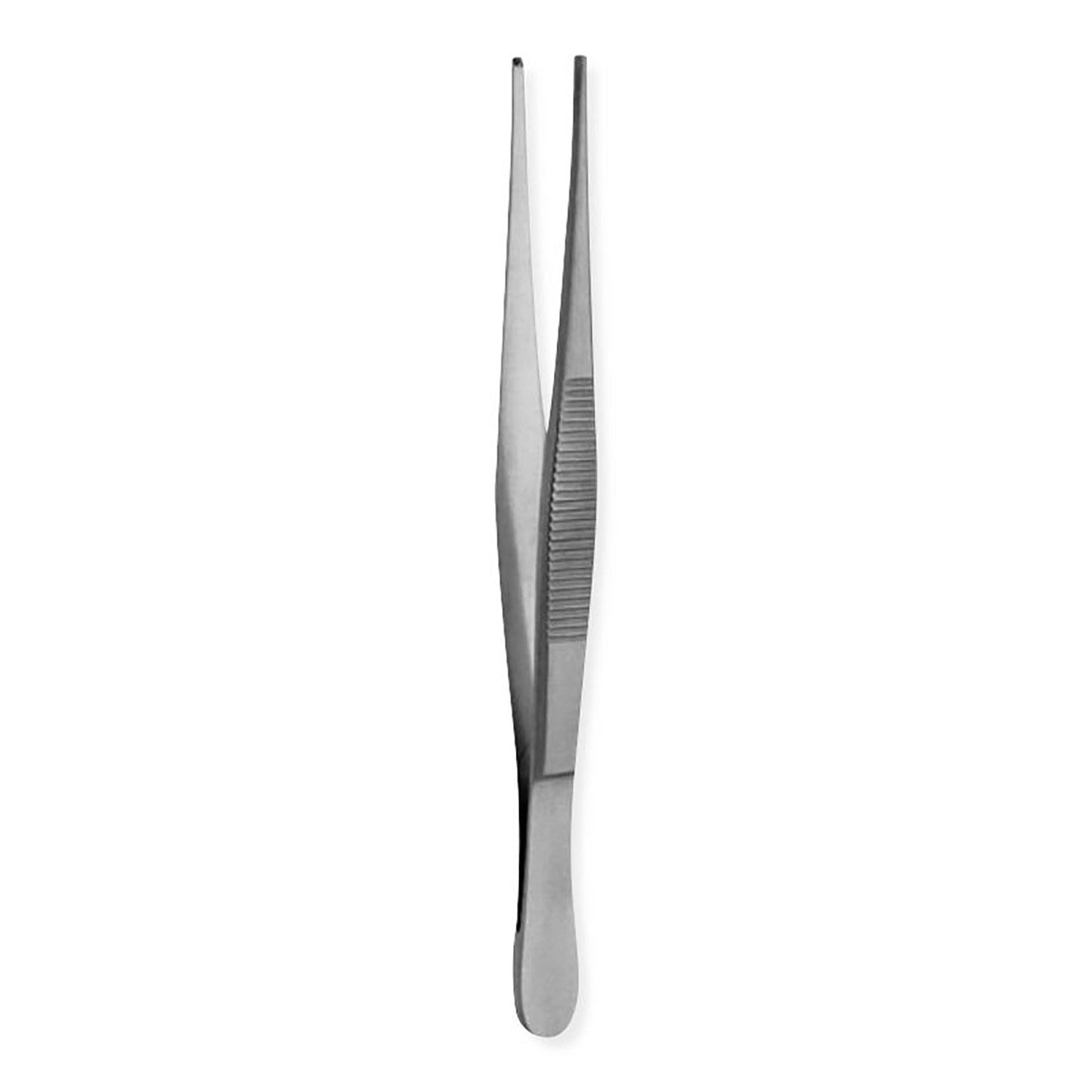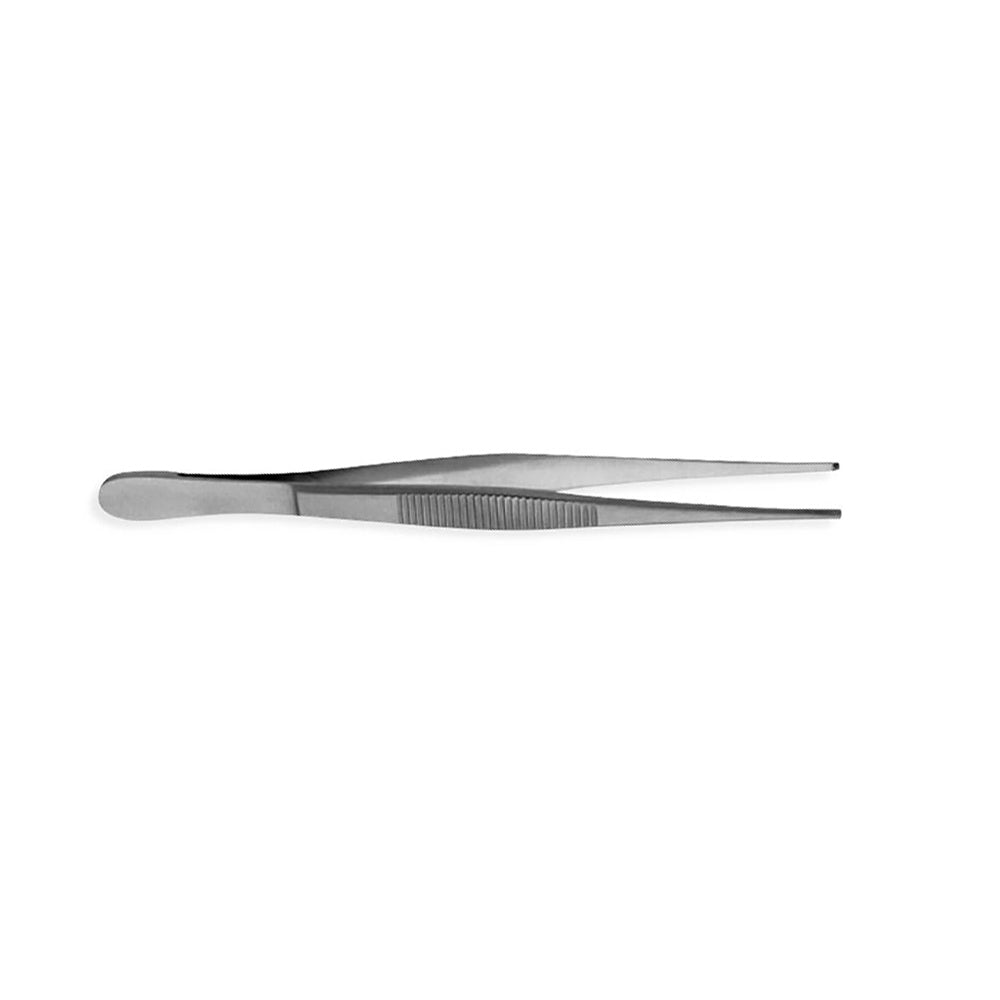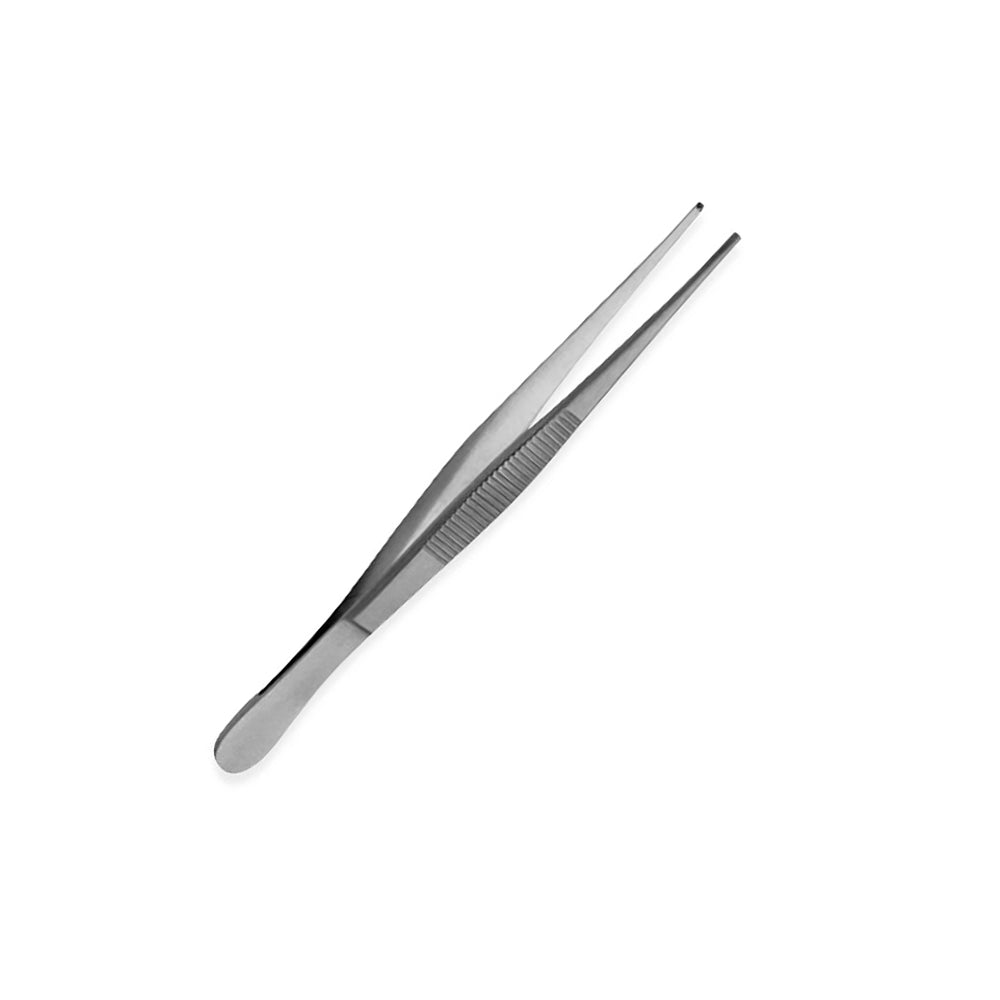PEAK SURGICAL
Tissue Forceps
Tissue Forceps
SKU:PS-1147
Couldn't load pickup availability
- 30 Days Money Back Guarantee.
- 100% Quality Satisfaction.
- Medical Grade Steel Reusable.



Tissue Forceps: Precision Tools for Surgical Excellence
Tissue forceps are essential surgical instruments that are used to hold, grip as well as manipulate tissue during surgical procedures. Their design allows for precision and control, allowing surgeons accomplish delicate tasks with less damage to the tissue. Tissue forceps are available in many kinds and sizes they are a versatile tool ideal to general plastic and more specialized procedures.
Produced using stainless steel of medical grade Tissue forceps last a long time, are resistant to corrosion and easy to sterilize, providing constant performance in high-pressure surgical settings. Their ergonomic and lightweight design improve usability, allowing surgeons to operate efficiently when performing lengthy procedures.
Key Features of Tissue Forceps
1. Serrated or Toothed Tips for Firm Grip
Tissue forceps typically have teeth or serrated tips they give a solid non-slip grip to tissues, and ensure accuracy during surgical procedures.
2. High-Quality Stainless Steel Construction
Made of high-quality stainless steel These forceps are tough, resistant to rust and are able to endure repeated sterilizations.
3. Lightweight and Ergonomic Design
The construction's lightweight design allows for the user's comfort, and ergonomic design reduces hand fatigue when performing long-term procedures.
4. Polished Surface for Easy Cleaning
A smooth, polished surface improves hygiene and allows the quick sterilization and cleaning, ensuring that the forceps are clean and ready for use on a regular basis.
5. Multiple Sizes and Variations
Tissue forceps come in a variety of lengths and styles that include straight and curved versions, as well as toothed and non-toothed designs offering a wide variety of surgical needs.
Types of Tissue Forceps
1. Toothed Tissue Forceps
These forceps are equipped with teeth on the points, which provide an ensconced grip on hard tissues like fascia or skin.
2. Non-Toothed Tissue Forceps
designed to handle sensitive tissues. These forceps come with serrated or smooth tips to limit the possibility of injury.
3. Adson Tissue Forceps
Perfect for reconstructive and plastic procedures, these forceps provide precise control and are commonly employed to suture or handle tiny tissues.
4. Allis Tissue Forceps
With serrated jaws, these forceps can be used to securely grasp tissues or hold them when suturing or dissection.
5. Debakey Tissue Forceps
specifically designed for vascular surgeries They are soft on the tissues and help prevent accidental injuries.
Applications of Tissue Forceps
1. General Surgery
Tissue forceps are crucial to secure tissues when sutures are in place, during incisions, or dissections for abdominal, thoracic, or other general surgeries.
2. Plastic and Reconstructive Surgery
In cosmetic procedures the exact grip of tissue forceps guarantees precise handling of delicate tissues to achieve the best outcomes.
3. Orthopedic Surgery
Tissue forceps are used to manipulate ligaments, tendons, and other structures in bone or joint surgeries.
4. Dental and Oral Surgery
They are used to keep tissues in place when performing extractions and other dental procedures.
5. Veterinary Applications
Tissue forceps are employed in veterinary surgery to manipulate tissues with attention and accuracy.
Benefits of Tissue Forceps
1. Enhances Surgical Precision
The toothed or serrated tips give the surgeon with a secure grip. surgeons to operate on tissues with precision and safely.
2. Reduces Tissue Trauma
Forceps that are not toothed and specifically designed guarantee minimal injury to tissues that are delicate, which can lead to speedier healing for patients.
3. Durable and Reusable
Made of high-quality stainless steel Forceps for tissue maintain their quality through use repeatedly in sterilization and use cycles.
4. Versatile Applications
Their flexibility makes them an indispensable tool in a variety of medical disciplines, further enhancing their use in clinical and surgical environments.
5. Cost-Effective Solution
Durable and reusable, tissue forceps can save you money when compared to disposable options, making the ideal option for hospitals.
Why Choose Tissue Forceps?
Tissue forceps are highly regarded by health professionals across the globe due to their long-lasting durability, precision and flexibility. Their capability to safely manipulate tissues while minimizing injury is a crucial tool to ensure superior surgical outcomes.
Conclusion
Tissue forceps are vital instruments that are part of the surgical toolkit that provide precision, control and dependability in a range of surgical procedures. With their robust stainless steel construct, ergonomic designs and numerous uses, they provide high-quality performance and safety for patients. Healthcare providers who focus on delivering top-quality healthcare using tissue forceps, it is a wise decision that improves surgical efficiency and the outcomes.


